An Autoethnography of Teaching Drama to Student Teachers in Hong Kong
Round 1
Reviewer 1 Report
Comments and Suggestions for Authors
Article Title: Autobiographical Narrative Inquiry: Interpretation of Materials Used in a Drama Lesson for Student-teachers
Brief summary:
This is a reflective narrative report in which the author utilises both literary and sociological perspectives in order to reflect upon their own pedagogical practise in teacher education, and specifically in drama education. The research seeks to make use of an auto ethnographical lens in order to probe and deconstruct choices made by the researcher in their approach to teacher education, with a view to illuminating the way in which those choices can offer insights into their practise.
As currently constituted the article lacks a coherent structure and has significant difficulties with both methodology and theoretical framing. This is compounded by English language issues which need to be addressed.
General comments:
Strengths:
The article attempts to provide genuinely useful insight into the practice and approaches of the researcher but which might have generally applicability to the field.
The article attempts to supplement an important emergent strand of discourse within drama education, whereby reflective and critically analytical approaches to drama work are undertaken.
Some of the analysis undertaken is undoubtedly interesting. However, it is difficult to link the ideas together and they are under-worked.
The research utilises literature that is genuinely of interest to the reader ranging from Zipes to moral education, including interesting literature around translation and language choices. However, it fails to knit these academic sources into a credible and sustainable theoretical framework which is employed in a manner which is comprehensible to the reader.
Weaknesses:
Context/focus/intent:
The intentionality and focus of the research article lacks clarity. The author should set out their aims and research questions clearly. The context within which the research has taken place needs to be described more clearly, as well as the choices made in using data from a number of years ago, and indeed as specific reworking of a workshop by another practitioner.
Article structure:
The article as currently framed needs some structural revisiting. The author should outline the intended trajectory/frame and intentions of the article at the outset and then follow that sequence of discussion. As currently framed the structure lacks coherence and meanders somewhat.
Methodology:
The article draws on the reflections of the author based on their own practice. It is suggested that this is a form of critical autoethnography. However, the usage lacks some of the methodological characteristics of this approach, which has a critical and well-established basis.
There are additional issues with regard to the data-set which is material from nearly a decade ago. No clarity is provided as to what ethical procedures were put in places.
There is a lack of clarity around what methodological tools and resultant data-sets, and modes of analysis, were utilised.
Positionality within drama education:
The theoretical framing of this work within drama education and teacher education is light and not up to date. Much important work which has taken place over the last decade in the area of reflective/practitioner and autoethnography is omitted.
Comments on the Quality of English LanguageThe quality of English language used in the work, whilst generally technically proficient, does not help clarity and mitigates against ease of reading and insight. It needs significant redrafting to improve readability.
Author Response
Thanks for your valuable comments. Please see my uploaded feedback.
Author Response File: ![]() Author Response.pdf
Author Response.pdf
Reviewer 2 Report
Comments and Suggestions for AuthorsThe piece provides insight into this author’s practice of adapting a piece of Western literature for teacher-educators in Hong Kong.
The journey into the research is unnecessarily long and at times repetitive. In the opening section, we do not need the last paragraph (bottom of page 2) - everything stated there that is of interest has already been stated.
In the following sections, “My learned role as a literary and dramatic interpreter” and Positioning 1A and 1B are not necessary. The import of this narrative autobiography is in the adaptation and drama processes. That you have three master’s degrees and a PhD are enough - we do not need extensive validation of your credibility or the history of this work (Bluebeard and Mr Fox) in adaptation over the last 150 years - get on with the work at hand. “My adaptation of Mr Fox as a learning medium” - this is what we want to read! It’s necessary to provide introduction and methodology, but you need to get to this section faster.
I suspect that your investment in autoethnography makes that opening section worthwhile to you - and if you feel strongly (and your conclusion suggests you do) that hearing this autobiographical narrative is central to the piece, consider refocusing that narrative around your journey as a drama educator who is invested in process-based forms - that would be more meaningful as preparation for the work you analyze with the teacher learners. The adaptation process of the underlying story is just not relevant to this discussion.
When we are in the section “My adaptation of Mr Fox as a learning medium”, you need to give a step-by-step orientation to the sequence of activities in the lesson early on - so that we have context for the commentary about what Winston did as compared to what you did. Right now, the reader is disoriented and this will easily be solved if you list out the plan first and then provide commentary after. See O’Neill’s Drama Worlds for an approach to setting this up. O’Neill puts her plans in columns with the strategies/conventions described in one column (“Episodes”) and some commentary in the second column (“Drama Elements”). I don’t think you need to organize it that way - but at least to list out the activities in the order they happen first will help.
In the analysis, it seems that ‘distancing’ in the way that Heathcote, Bolton, and O’Neill talk about is not appropriately engaged. Your participants seemed to prioritize their actual experience and understanding of their world over that of the characters in the fiction and were not willing to consider the experience of these characters in their world in the way you wanted them to. As such, perhaps the distancing was too great. Talk more about this–what was your objective here and to what degree was it met; was the experience meaningful for the participantseven if they used the dramatic context to just talk about their real-life, external perceptions rather than exploring the perspectives within the narrative.
From there, your analysis and conclusions are good - but note that if you refocus the opening section as I suggest, you will need to adjust the conclusions accordingly.
Comments on the Quality of English LanguageIt reads as though it is not written by a native English speaker. That said, it was understandable. If the author wants the piece to read more fluently, they should engage with an editor to tighten up some phrasing. However, I don't think it's necessary.
Author Response
Thanks for your valuable comments. Please see my uploaded feedback.
Author Response File: ![]() Author Response.pdf
Author Response.pdf
Reviewer 3 Report
Comments and Suggestions for AuthorsMy overall estimation of the paper is high and I found it as a well referenced example of the cross-cultural use of narratives in moral education. It has been contextualized within the Hong Kong education system, however nothing is given about that system, neither in the text, nor in references.
The idea of dramatic moral education is worth considering and overcomes the "frames" of in-service teachers making education more exciting and engaging for students.
My remarks are focsed on two issues:
1. Methodology.
The Author uses authoetnography as an approach to the research and seeks to describre and analyse personal experience in order to understand the cultural one. It thus involves exploring the impact of grand narratives challenged by local cultural background and searching for the way of conveying the story over existing differences to effectively apply a model from one cultural world to another.
On p. 1 the Author says this journey is going to have two stages (interpreting/misinterpreting and translating), but on p. 2 three stages are mentioned in the paragrph explaining the use of narrative inquiry. In the same place the Narrative Dimension Model is mentioned, but only two dimensions are used within this inquiry (ownership and authorship). I'd rather have here the Ven De Mieroop theory more precisely described, i.e. to shortly define all the dimensions and a bit broader the two in use specifically.
Also on p. 2 a paragraph is discussing interactional positioning as a kind of qualitative research. Wouldn't is be necesary here to mention how many people were involved in the research in 2015 and in 2016 and how many of them shared same or similar experiences in contact with the canonical stories?
My third methodological comment concerns the last paragraph, where I would like to find more contextualisation, i.e. - are there other authors who have similar or different results from the same autoethnographic study on a similar issue? In my opinion, this is essential to make the discussion scientifically sound.
2. Content.
As mentioned above, there seems to be a lack of more data on the Hong Kong education system and the content of moral education (at least there is no reference to it), such as the core curriculum of moral education or its educational outcomes. My curiosity is focused on stories that are local and used in moral education, which may make the translation of the Western ones redundant.
This gives more light on the main purpose of the research described in the paper. Is the Author only focused on describing the necessary adaptations of Western narratives, or more on considering these as a key step towards the main goal in moral education, i.e. discovering the human qualities that are embedded in these stories, especially in order to deliver "strong female characters" (based on the adapted stories - cf. p. 4)? Methodologically the former is true, but the summary also mentions gender positioning (p. 10). I wonder, then, if the use of Western fairy tales is not seen here as a tool for cross-cultural transmission of values, rather than just adaptation, or adaptation to understand and consider metacultural moral attitudes.
This question is not intended to look for negatives but to reflect on the purpose of these adaptations, but it may also be beyond the scope of the research.
Finally, the article should undergo additional linguistic revision due to grammatical errors.
Author Response
Thanks for your valuable comments. Please see my uploaded feedback.
Author Response File: ![]() Author Response.pdf
Author Response.pdf
Round 2
Reviewer 2 Report
Comments and Suggestions for AuthorsI appreciate your time and attention to the previous review. I expect this article to prove meaningful to practitioners and teacher educators in the coming years. I encourage you to investigate the Dorothy Heathcote NOW conference, an annual gathering in the UK that focuses on reimagining process-based drama practices. Given your work and interests, I think you will find it most engaging.
Author Response
Dear Reviewer,
Thanks for your kind comments and information. Yes I'm planning to resume visiting drama conferences after COVID, and I'm more than happy to explore this Dorothy Heathcote Now Conference. Seems that there were conferences in 2022 and 2023, but not a forth coming one in 2024?
Article author






